Search Results
Showing results 581 to 600 of 901
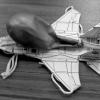
Vectoring: Steering a Plane
Source Institutions
In this two part activity, learners work in pairs or individually to discover how vectoring the thrust from a jet engine affects movement of an airplane.

Rock Candy
Source Institutions
In this yummy chemistry activity which requires adult supervision, learners use sugar and water to explore how crystals form.

Nature of Dye
Source Institutions
"Nature of Dye" allows participants to create their own dyes and art while exploring how chemicals interact and how these interactions can have real-world applications.
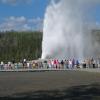
Tiny Geyser Models
Source Institutions
In this activity (located on page 2), learners will construct tiny model geysers out of film canisters, warm water, and antacid seltzer tablets.
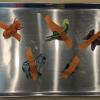
Animal Tape Rescue
Source Institutions
In this activity learners will "rescue" animals from tape and then sort the animals. Learners will use science process skills such as categorizing and making observations while they play.
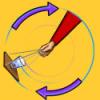
Up and Over
Source Institutions
This is an activity about Newton's First Law of Motion - a body in motion tends to stay in motion, or a body at rest tends to stay at rest unless acted upon by an outside force.

Conversation Piece
Source Institutions
Focus sound through a balloon! In this Exploratorium activity, you'll use dry ice to create a balloon that's a sound lens.

Fossil Dig Site
Source Institutions
In this activity (located on page 5 of PDF), learners work in groups to create dig sites for display.

School of Fish
Source Institutions
In this activity, learners will make fish cutouts that propel through the water with the help of surface tension.
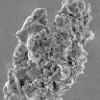
Properties of Dust
Source Institutions
In this activity, learners carry out a scientific investigation of dust in their classroom. Learners produce an analysis on graph paper of the dust they collect over the course of a few days.

Discovery Time: Dirt
Source Institutions
In this activity, young learners (2 years and up) explore dirt and what is in it by painting with mud.
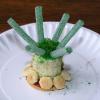
Build a Coral Polyp
Source Institutions
In this activity, learners build one or more edible coral polyps and place them together to form a colony.

Does it Stick?
Source Institutions
In this activity, learners will observe magnetic properties and sort objects by them. This activity uses everyday items to teach learners about magnetic forces, poles and properties of magnets.

Make a Snake String & Snake Survey
Source Institutions
In this activity, learners will construct a measuring device (snake "string") to improve their observation skills.

Make your own Antelope Horns!
Source Institutions
In this craft activity, learners will explore the structure and purpose of antelope horns by constructing their own headband using toilet paper rolls and yarn.

Invisible Ink
Source Institutions
In this hands-on activity (on page 2 of the PDF), learners experiment with lemon juice and paper to create a message that can only be revealed using chemistry.
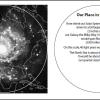
Our Place in Our Galaxy
Source Institutions
In this fun and simple hands-on astronomy activity, learners construct a model of our place in the Milky Way Galaxy and the distribution of stars, with a quarter and some birdseed.
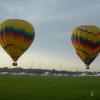
Convection Demonstration
Source Institutions
In this quick activity (located on page 2 of the PDF under GPS: Balloon Fiesta Activity), learners will see the effects of convection and understand what makes hot air balloons rise.

Feel the Heat
Source Institutions
In this design challenge activity, learners design and build a solar hot water heater. Their goal is to create a heater that yields the highest temperature change.

Pipes of Pan
Source Institutions
Create an instrument that you don't play--you just listen to it through tubes of various lengths.
